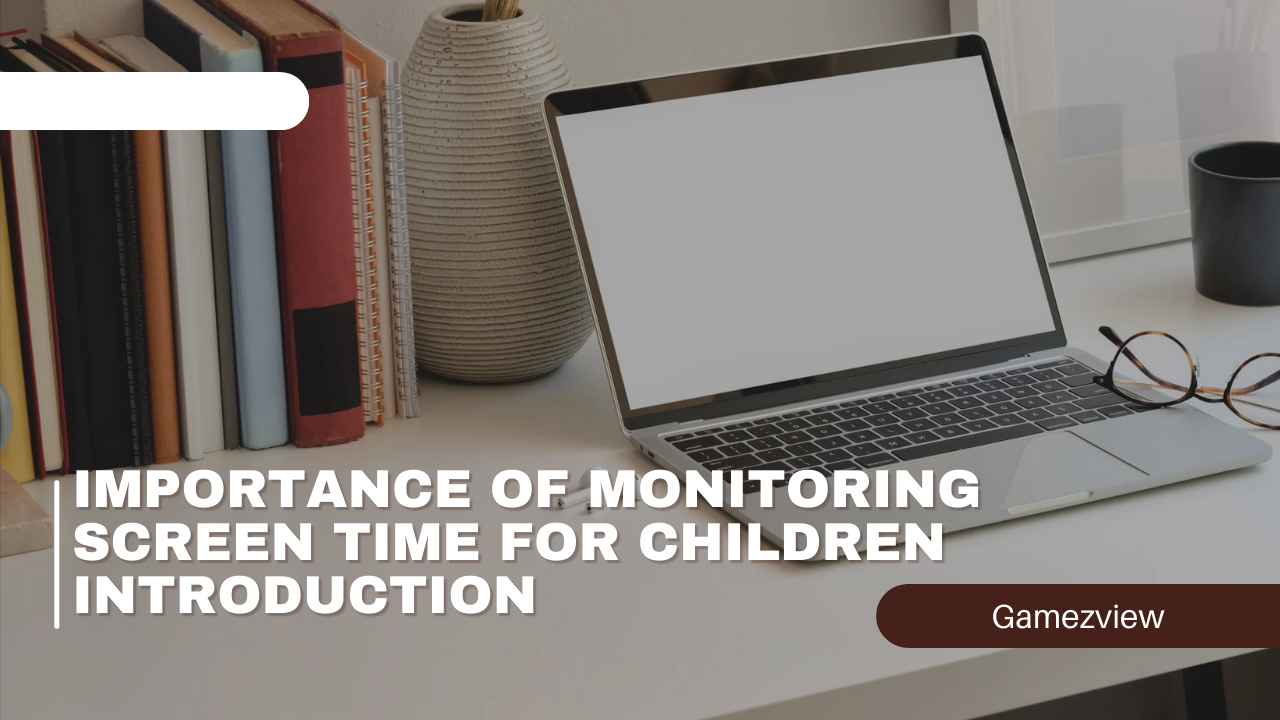In today’s digital age, screens are an integral part of daily life, providing education, entertainment, and social connectivity. However, excessive screen time for children can have significant negative effects on their physical health, mental well-being, and overall development. Monitoring and managing screen time is crucial for ensuring a balanced lifestyle for children and fostering healthy habits that will benefit them throughout their lives. This article delves into the importance of monitoring screen time, the potential risks associated with excessive usage, and strategies for effective management.
The Rise of Screen Time Among Children
Increased Access to Digital Devices
The proliferation of digital devices such as smartphones, tablets, and computers has led to a significant increase in screen time among children. According to recent studies, the average child spends several hours a day in front of screens, including time spent on educational activities, video games, and social media. This rise in screen time has raised concerns among parents, educators, and health professionals about the potential impact on children’s development.
Impact of the COVID-19 Pandemic
The COVID-19 pandemic further exacerbated the situation, with remote learning and virtual interactions becoming the norm. As a result, children’s screen time skyrocketed, with many spending more than double the recommended amount of time in front of screens. While digital devices provide essential connections to education and social life, the long-term effects of increased screen time are still being assessed.
The Potential Risks of Excessive Screen Time
Physical Health Issues
Excessive screen time can lead to a variety of physical health problems in children:
- Eye Strain and Vision Problems: Prolonged screen exposure can cause digital eye strain, leading to symptoms such as dry eyes, headaches, and blurred vision. It may also contribute to myopia (nearsightedness), especially in younger children.
- Obesity: Spending too much time on screens often replaces physical activities, contributing to sedentary behaviour and an increased risk of childhood obesity. This can lead to long-term health issues such as diabetes and cardiovascular disease.
- Sleep Disturbances: The blue light emitted by screens can interfere with the production of melatonin, a hormone that regulates sleep. Excessive screen time, especially before bedtime, can disrupt sleep patterns and lead to poor sleep quality.
Mental and Emotional Well-Being
Excessive screen time can also have significant effects on children’s mental and emotional health:
- Increased Anxiety and Depression: High levels of screen time, particularly on social media, have been linked to increased rates of anxiety and depression in children. The constant exposure to idealized images and the pressure to conform to social standards can affect their self-esteem and mental health.
- Behavioural Issues: Children who spend a lot of time on screens may exhibit behavioural problems, such as increased aggression, impulsivity, and difficulty focusing. These issues can impact their academic performance and social interactions.
- Reduced Social Skills: Excessive screen time can limit face-to-face interactions, hindering the development of important social skills. Children may struggle with real-world communication, empathy, and relationship-building.
Impact on Cognitive Development
Cognitive development can also be affected by too much screen time:
- Delayed Language Skills: For young children, excessive screen time can delay the development of language skills. They may have fewer opportunities to engage in conversations and practice speaking, leading to language delays and difficulties in communication.
- Impaired Academic Performance: Spending too much time on screens, particularly on non-educational activities, can negatively impact academic performance. Children may have less time for homework and reading, and their attention and concentration in school may suffer.
The Benefits of Balanced Screen Time
Educational Opportunities
When used appropriately, screen time can offer numerous educational benefits for children:
- Access to Educational Content: Digital devices can provide access to a vast array of educational resources, including online courses, educational games, and e-books. These tools can enhance learning and make education more engaging and interactive.
- Development of Digital Literacy: Learning to navigate and use digital technology effectively is an essential skill in today’s world. Balanced screen time can help children develop digital literacy skills that are important for their future education and careers.
Social Connectivity
Screens can also facilitate social interactions and connections:
- Staying Connected: Digital devices allow children to stay connected with friends and family, especially during times when in-person interactions are limited. This can help maintain relationships and provide emotional support.
- Participation in Online Communities: Children can join online communities that share their interests, providing a sense of belonging and opportunities to learn and grow in areas they are passionate about.
Entertainment and Relaxation
Screen time can also offer valuable entertainment and relaxation:
- Access to Engaging Content: Digital devices provide access to a wide range of entertainment options, including movies, TV shows, and games. When enjoyed in moderation, these activities can offer relaxation and enjoyment.
- Creative Expression: Screens can be a platform for creative expression, allowing children to create and share their content, such as videos, artwork, and stories.
Strategies for Monitoring and Managing Screen Time
Setting Clear Guidelines
Establishing clear rules and guidelines for screen time is crucial for managing usage effectively:
- Create a Screen Time Schedule: Set specific times for when screen time is allowed and designate tech-free periods, such as during meals or before bedtime. This helps create a balanced routine and prevents excessive usage.
- Define Acceptable Content: Decide which types of content are appropriate for your child and set boundaries on what they can access. Use parental controls to block or limit access to unsuitable apps and websites.
Encouraging Alternative Activities
Promoting a variety of activities can help reduce reliance on screens:
- Encourage Physical Activity: Ensure that your child engages in regular physical activities, such as playing sports, riding a bike, or simply spending time outdoors. This helps counterbalance the sedentary nature of screen time.
- Promote Hobbies and Interests: Encourage your child to explore hobbies and interests that do not involve screens, such as reading, drawing, or playing a musical instrument. This can provide a healthy balance and promote overall development.
Modelling Healthy Screen Habits
Children often imitate their parent’s behaviour, so it’s important to model healthy screen habits:
- Set a Good Example: Show your child how to use screens responsibly by limiting your own screen time and engaging in offline activities. This sets a positive example and reinforces the importance of balanced usage.
- Be Present and Engaged: When spending time with your child, be present and engaged without the distraction of screens. This demonstrates the value of face-to-face interactions and helps strengthen your relationship.
Using Parental Control Tools
Parental control tools can help manage screen time effectively:
- Install Parental Control Apps: Use apps and software that allow you to monitor and control your child’s screen time. These tools can set time limits, block inappropriate content, and provide insights into their online activities.
- Monitor Usage Regularly: Regularly review your child’s screen time and adjust rules and limits as needed. This ensures that screen time remains balanced and appropriate for their age and needs.
Monitoring and managing screen time is essential for ensuring the healthy development of children in today’s digital world. By understanding the potential risks of excessive screen time and implementing effective strategies, parents can help their children enjoy the benefits of digital technology while maintaining a balanced lifestyle. Encouraging a variety of activities, setting clear guidelines, and modelling healthy habits are key steps in fostering a positive and balanced approach to screen time.



